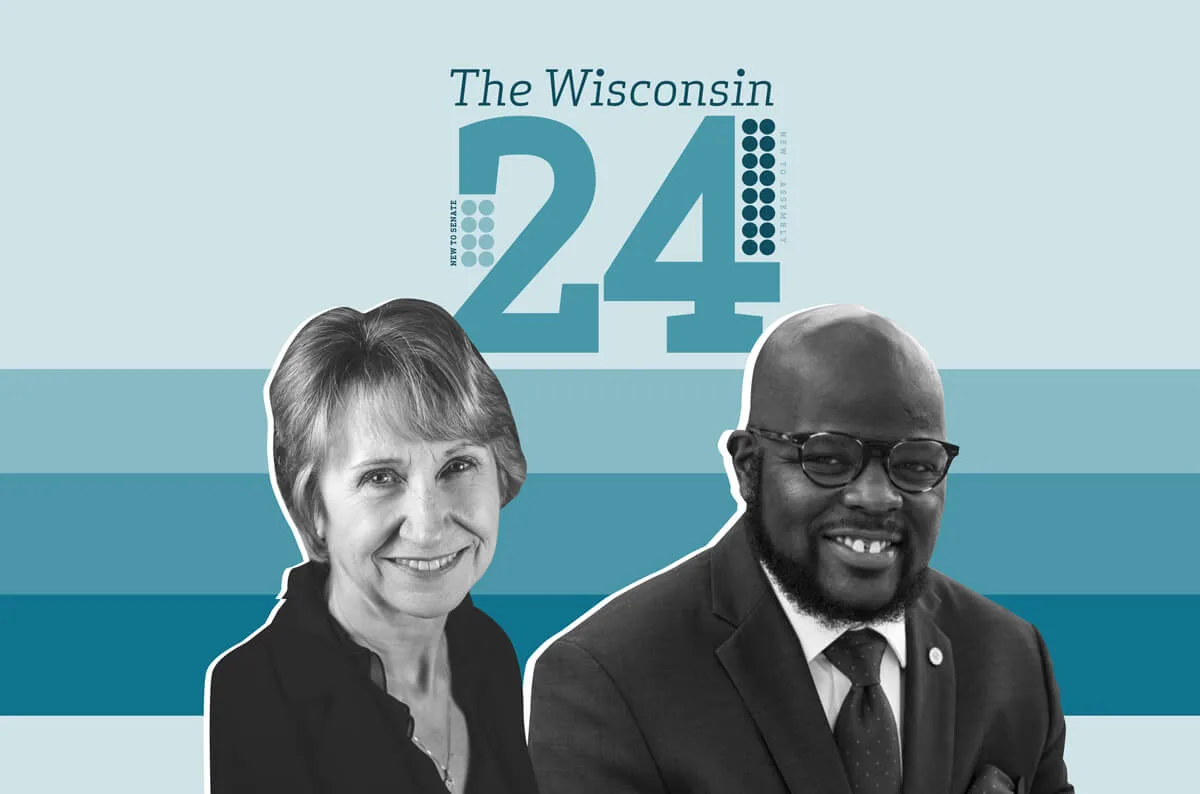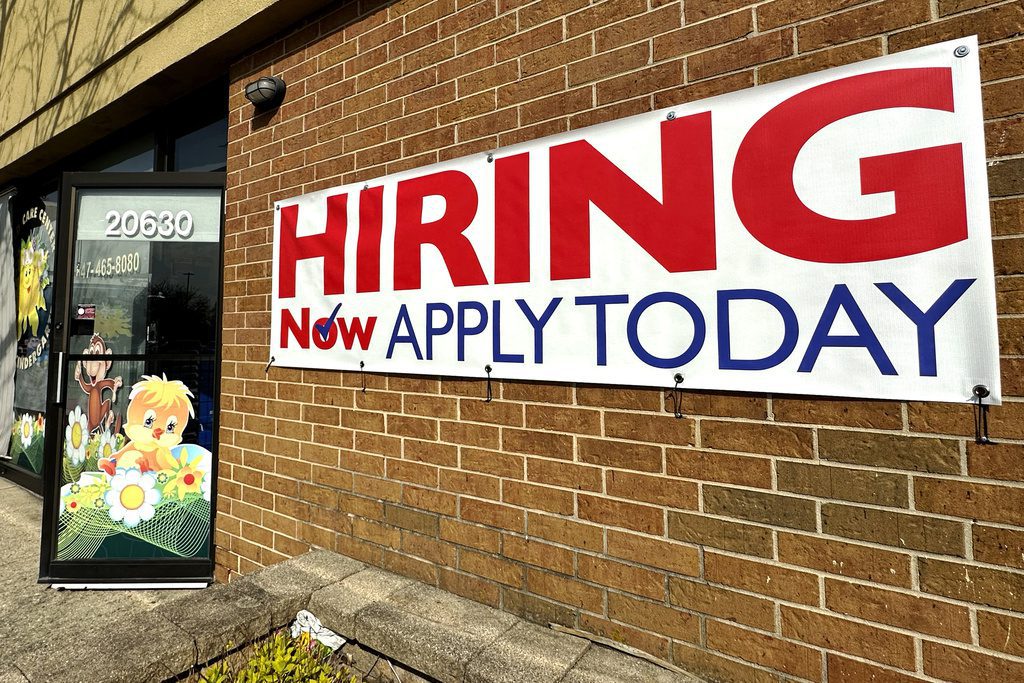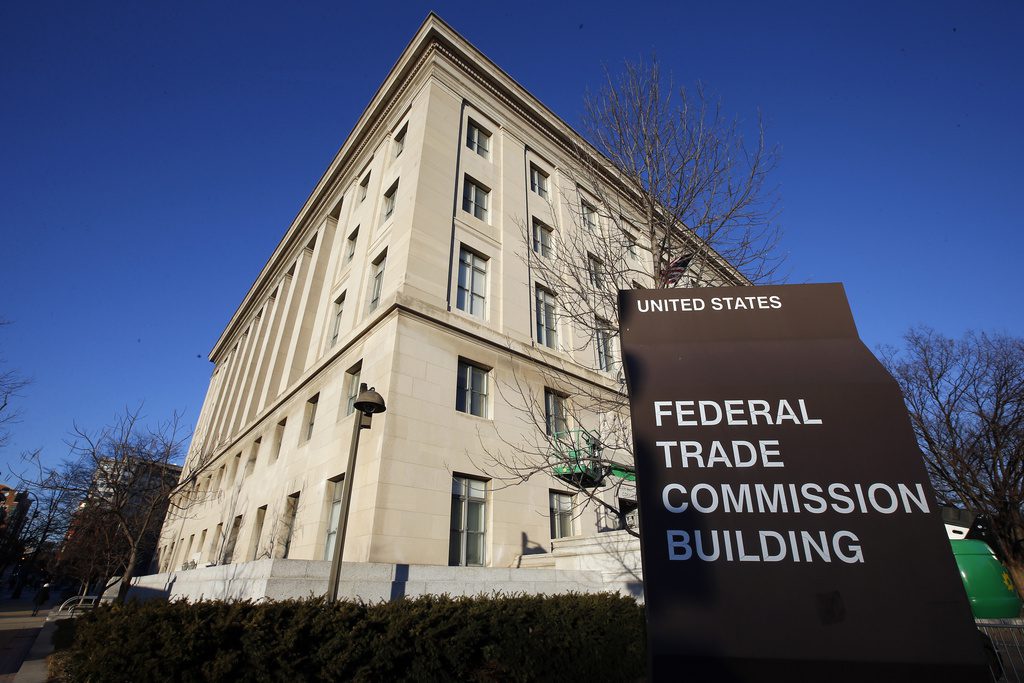
#image_title
#image_title
Conley is interested in housing solutions for renters and landlords, while Omokunde wants to address climate injustice and climate change.
[Editor’s note: The Wisconsin 24 is a new series at UpNorthNews to introduce readers to the newly elected members of the Wisconsin Legislature. All told, there are 10 new Democratic members and six new Republican members to the Assembly. The Senate is welcoming three Democratic and five Republican members. To see all of the profiles in the Wisconsin 24 series, click HERE.]
Rep-elect Sue Conley (D-Janesville) will be the new lawmaker representing the 44th Assembly District when the Legislature returns for business in January.
The Janesville City Council president with a background as a nonprofit manager, Conley said she decided to run for higher office when her friend and the district’s current representative, Deb Kolste, said she would not be running for re-election.
“I really have an appreciation for what it means to represent our community, and the skills necessary to serve at the state level,” Conley recently told UpNorthNews.
Topping her to-do list of priorities is expanding Medicaid, creating fair maps, addressing the fallout from the pandemic, and building bipartisanship. Another priority is working toward housing solutions that project renters and landlords.
A federal moratorium on tenant evictions expires at the end of the year. Folks unable to find work are struggling to pay their rent. Conley said it is “critical to her” to find ways to keep people in their homes and take care of the landlords.
“They have bills, too,” Conley said. “We can’t forget about the other side of the equation.”
Conley is among the state’s lawmakers who have been elected in so-called “safe districts,” meaning the district voting maps have been drawn to favor one party over another. She said that works out well for her and other Democrats who run in the district—she won the seat by a 60% majority—but not so well for the voters.
“We are a very purple state,” she said. “Every voice should be valued, respected, and heard.”
The creation of highly partisan district voting maps has created gridlock at the Capitol. Building consensus and reaching across the political aisle to engage with Republicans is an effort she is willing to make.
“I realize I am a freshman and a little idealistic about it,” Conley said. “But hopefully everyone coming in is tired of the partisanship. Let’s just work together. I think that’s best for everybody.”
Perhaps one of the bigger partisan topics to move Republican views on is accepting federal funds to expand Medicaid. Conley said she recently spoke with a woman who is taking advantage of the insurance exchange but her premiums are doubling next year.
“That’s been a nonstarter with Republicans for a long time now,” Conley said. “But having your premiums double for a high deductible plan that only comes into play for catastrophic surgeries is a hard pill to swallow. We need to figure that out.”
If Supreme Moore Omokunde’s middle name looks familiar, that’s because it is. He’s the son of the Rev. Dr. Tolokun Omokunde and US Rep. Gwen Moore, the first African American to represent Wisconsin in Congress.
“I got to witness up close what it’s like to have really good representation. I try to model myself after her in many ways,” Omokunde said. “I’ve gotten a little bit spoiled watching her firsthand. This is what representation is supposed to look like; you’re supposed to put your all into it.”
He remembers hearing about Moore “going to war” at the Statehouse, but as she was heading home, “she would leave that on the freeway and she would come home and be a mom.”
“She went, played the game, and after the game was over she took her jersey off and hung it up and went home,” he said.
Now after five years on the Milwaukee County Board of Supervisors, Omokunde is ready to play the game as well. One of his top priorities going into office is addressing climate change and climate justice, which can look different depending on a community’s needs.
For example, in Milwaukee it could mean removing lead pipes. In other areas it could be addressing runoff that pollutes drinking water or investing in renewable energy.
Climate justice doesn’t only address greenhouse gasses and natural resources, but can also address economic issues and infrastructure.
“As we do work around climate justice, we need to make sure that we are creating the kinds of jobs that are necessary, like the jobs that we lost during deindustrialization, especially in Black and brown communities in places like the city of Milwaukee,” Omokunde said. “We need to couple the jobs and equity part, and a reduction in our greenhouse gas emissions and preparing for a greener economy and establishing some green infrastructure.”
Another priority for Omokunde, in light of the COVID-19 pandemic, is reforming health care to make it more accessible.
“We need to make sure we’re not bankrupted by going to see doctors, that people don’t stop going to see doctors and become sicker because they’re afraid of the big bill that will come,” he said.
Also with the budget discussions coming up, Omokunde wants to see more of the growing pot of money that Milwaukee County sends to the state returned to the county for better services and investments in infrastructure. He was one of the county supervisors and area stakeholders who approved the “Fair Deal for Milwaukee County” recommendations and wants to see them taken up at the Statehouse.
In light of the demonstrations in Milwaukee and across the nation in support of Black Lives Matter, and in response to the killing of George Floyd and shooting of Jacob Black, Omokunde said it is his duty as a legislator to deliver systemic changes that will improve people’s lives.
“We need to look at how we change these systems that have plagued many of our communities for so very long and ways that we can come up with really good, fruitful legislation that reflects the will of the people,” he said. “People were out marching six, eight, 10, 12 hours a day because they want something that is substantially different from what they have now.”
Regardless of the issue, he wants to see civility return to the Legislature and for Democrats and Republicans to work together.
“I think that it’s really important to talk about good policy. I think that good policy doesn’t have a ‘D’ or an ‘R’ next to it,” he said. “We can all come to the table, find out what our common denominators are, and focus on those things.”
Politics

Biden administration bans noncompete clauses for workers
The Federal Trade Commission (FTC) voted on Tuesday to ban noncompete agreements—those pesky clauses that employers often force their workers to...

Opinion: Trump, GOP fail January 6 truth test
In this op-ed, Milwaukee resident Terry Hansen reflects on the events that took place on January 6, the response from Trump and other GOP members,...
Local News

Readers Poll: Top Bowling Alleys in Wisconsin
Looking for the best bowling in Wisconsin? Look no further! Our readers have spoken in our recent poll, and we have the inside scoop on the top...

8 Wisconsin restaurants Top Chef judges are raving about
Top Chef’s 21st season is all about Wisconsin, and on-screen, it’s already apparent that the judges feel right at home here. But, while filming in...



